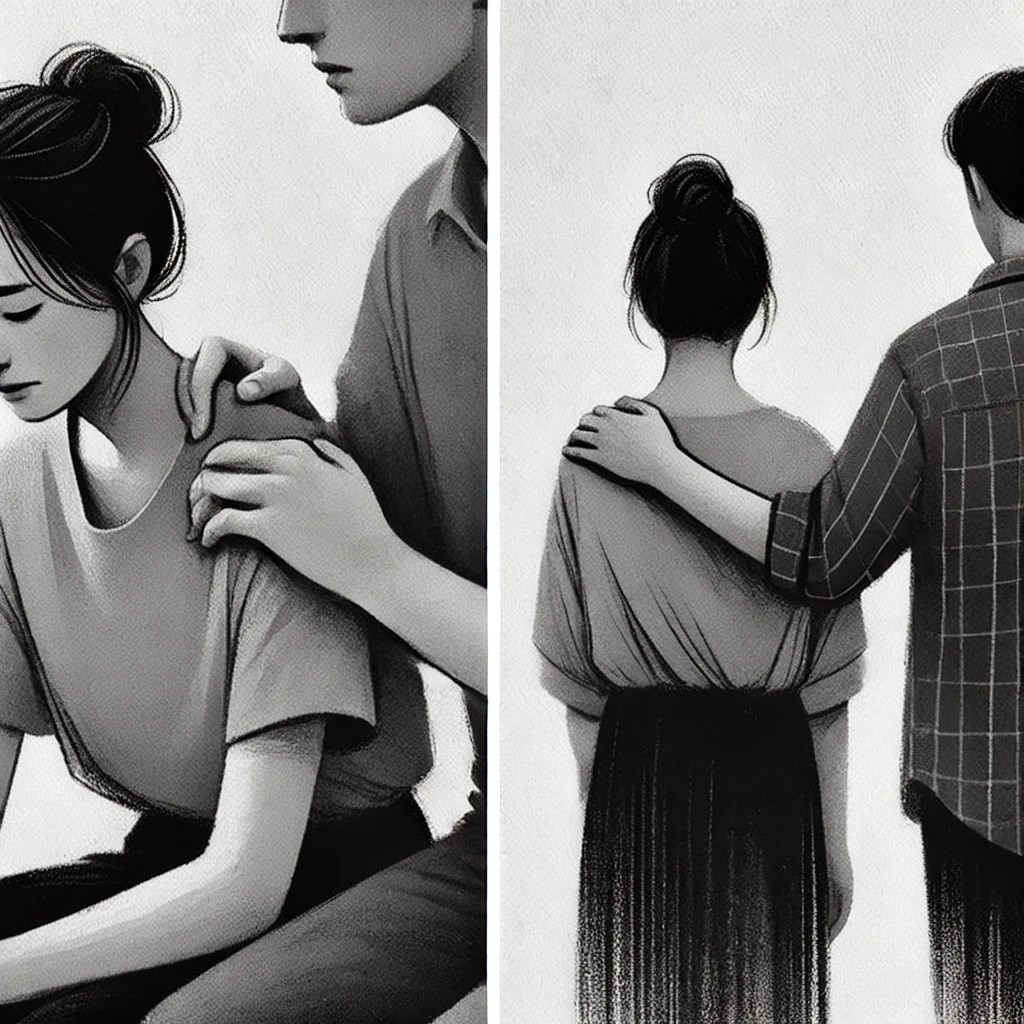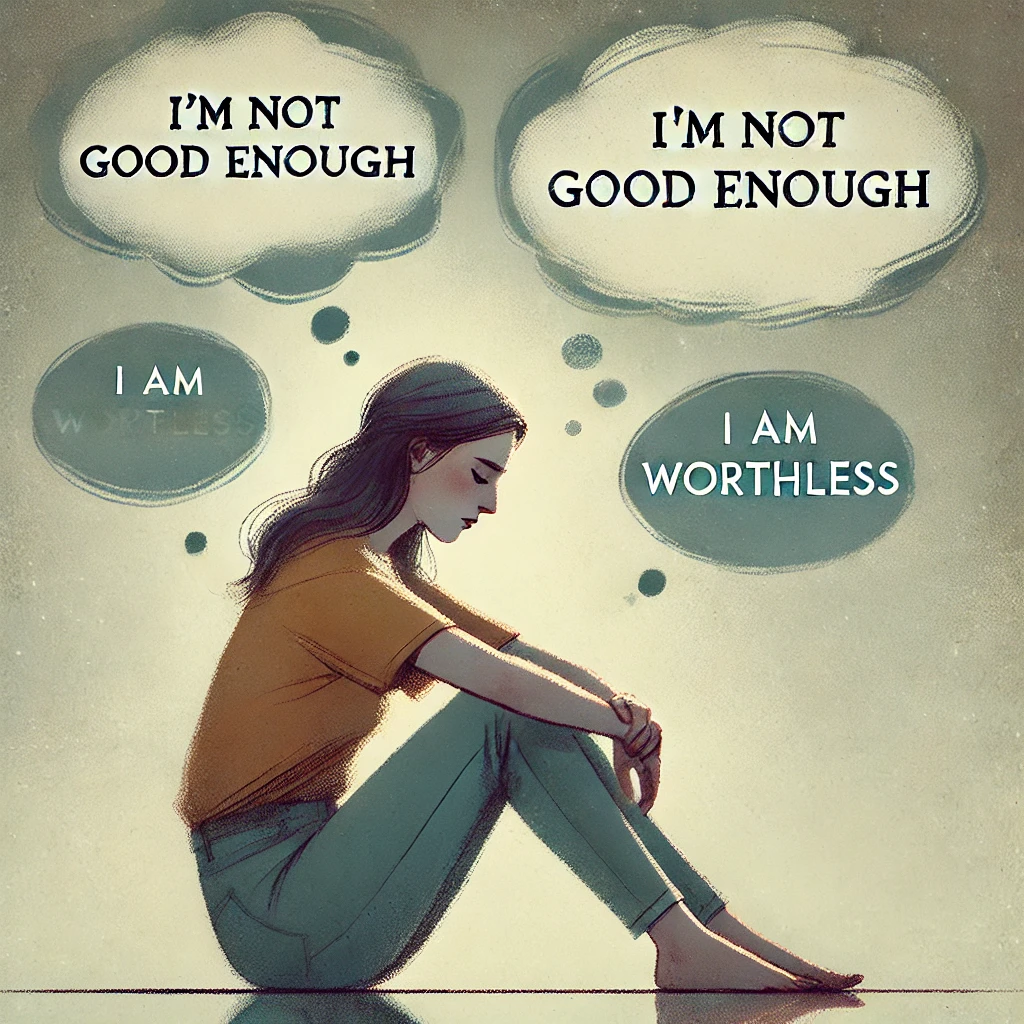
Supporting a Partner with Rejection Sensitivity Dysphoria in 8 Steps

Supporting a partner with Rejection Sensitivity Dysphoria (RSD) is essential when they experience intense emotional and physical reactions to perceived rejection or criticism. Though it's not an official diagnosis in the DSM-5, the experience is very real, especially for ADHD women. If your partner has RSD, supporting them can feel challenging at times, but with empathy, patience, and clear communication, you can create a safe and supportive relationship for both of you.
Here’s what you need to know about supporting a partner with RSD.
1. Understand What Rejection Sensitivity Dysphoria (RSD) Is
RSD causes people to experience overwhelming emotional pain when they feel rejected, criticized, or even imagine rejection.
For those with RSD, these feelings aren’t just "being too sensitive"; the emotional and physical pain of RSD can be debilitating.
Your partner’s Rejection Sensitivity Dysphoria may not be something they can "snap out of" or "get over" quickly, and it’s important to acknowledge that the pain they feel is genuine.
- Highly Sensitive from a Young Age: Individuals with RSD are often highly sensitive from a young age. You may recall your partner being sensitive or emotional for as long as you've known them. This trait isn’t new; it’s likely a part of their lifelong experience that has confused them and caused them repeated experiences of intense pain.
- RSD and ADHD: While RSD is not exclusive to individuals with ADHD, it is commonly experienced as worse by ADHD people who have difficulty with emotional regulation. Understanding this link may help you better in supporting a partner with rejection sensitivity dysphoria. Please don't attribute RSD reactions to personal shortcomings.
2. Recognize the Intensity of Their Pain
The pain of rejection for someone with RSD can be so intense that it’s hard for them to describe. They may use words like “awful,” “terrible,” “devastating,” or “catastrophic” to communicate how they feel. This pain is not exaggerated— their body and mind are in distress,
Many ADHD women experience RSD as physical pain.
- Validate Their Experience: One of the best things you can do when supporting a partner with rejection sensitivity dysphoria is to validate their feelings. Instead of dismissing their emotions, show empathy by saying things like, "I understand this feels really hard for you," or "I can see that this is painful for you." This helps your partner feel seen and understood, reducing feelings of isolation and regulating them.
3. Be Mindful of RSD Triggers
Women with RSD are hypersensitive to even small cues that may signal rejection, such as a change in tone or a delayed response to a message. Sometimes, what may seem like a benign comment or situation can trigger an RSD episode.
- Talk About Triggers: Have an open conversation with your partner about what triggers their Rejection Sensitivity. You could ask, "What situations make you feel rejected or anxious?" Knowing their triggers will allow you to communicate more effectively and reduce misunderstandings.
- Inadvertent Triggers: Remember that you may sometimes trigger their RSD unintentionally. When this happens, rather than becoming defensive, acknowledge their feelings and ask how you can support them.
4. Create a Safe Space for Communication
RSD often intensifies when a person feels criticized, even if the criticism is unintentional. Creating a safe space for communication helps reduce the chances of triggering an RSD episode during sensitive conversations.
- Check-In Before Sensitive Topics: Before starting a conversation about something important, ask your partner if they have a suitable emotional space to talk. For instance, you could say, “Is this a good time to talk about something that’s been on my mind?” This lets your partner prepare emotionally and prevents sudden triggers.
- Use Collaborative Language: When discussing issues or offering feedback, use language that feels collaborative rather than critical. Phrases like, “Would you be open to…” or “Could we talk about this together?” reduce the chance of your partner feeling attacked or rejected.
5. Be Generous with Positive Reinforcement
Because individuals with RSD can feel rejection acutely, positive reinforcement can make a big difference in their emotional well-being. Regularly give genuine compliments and affirmations, highlighting things your partner does well or qualities you appreciate.
- Regular Positive Feedback: Simple compliments like “I love how thoughtful you are” or “You really put so much care into everything you do” can help boost their self-esteem and provide emotional reassurance.
- Help Them Feel Secure: Frequent positive reinforcement helps your partner feel secure and counters the negative feelings RSD can bring. It’s a way to balance the emotional scales when their mind is focused on potential rejection.
6. Pay Attention to Nonverbal Cues
Nonverbal communication, such as facial expressions, tone of voice, and body language, can unintentionally trigger RSD. If your partner perceives disapproval or annoyance, even if none is intended, it can spark an emotional response.
- Be Mindful of Expressions: Keep your facial expressions neutral or kind when discussing something difficult or giving feedback. A slight frown or an impatient tone might be interpreted as rejection, even if you don’t mean it that way.
- Choose Words Carefully: Frame your words thoughtfully. For instance, instead of saying, “You never listen,” you could say, “I feel unheard when this happens,” which places focus on your feelings without making your partner feel attacked.
7. Encourage Professional Support
If your partner’s RSD is causing significant distress in their life, suggesting you seek help together, help can be a positive step. Therapy can support you both.
8. Practice Patience and Empathy
Navigating a relationship with someone with RSD can require extra patience, but it’s important to remember that your partner’s sensitivity is not something they choose. They have usually been misunderstood, discriminated against, and mistreated most of their life because of their ADHD.
You help create a space where they feel supported and loved by offering empathy and patience during challenging moments.
- Empathy Is Key: Remember that your partner isn’t trying to be complicated. Their reactions come from a place of emotional pain, and by showing empathy, you can help them feel understood and safe.
Final Thoughts on Supporting a Partner with Rejection Sensitivity Dysphoria
Creating a space where your partner feels safe, understood, and valued is essential when they struggle with Rejection Sensitivity Dysphoria (RSD). RSD is not something they can control, but with the right approach, you can help ease their emotional burden. By offering reassurance, practicing empathy, and communicating openly, you can strengthen your bond and help your partner feel secure.
Here are some more pages on Rejection Sensitivity Dysphoria on this Site






